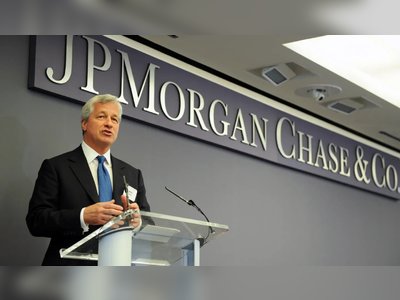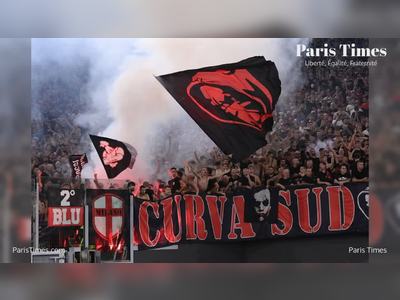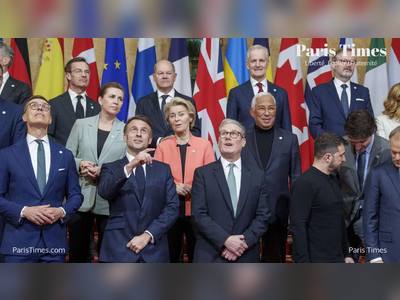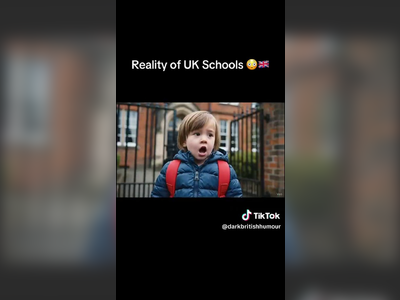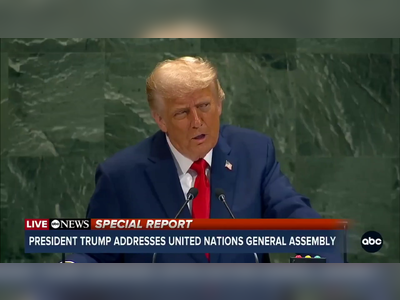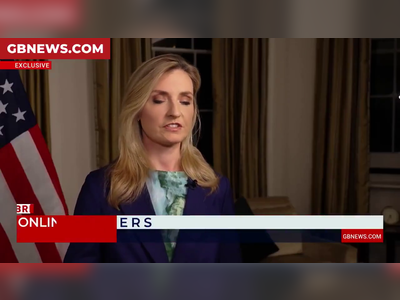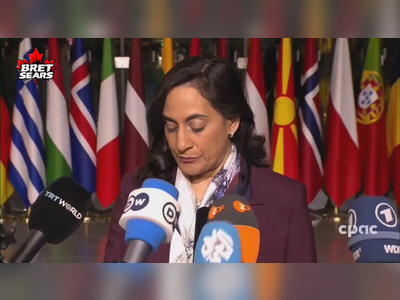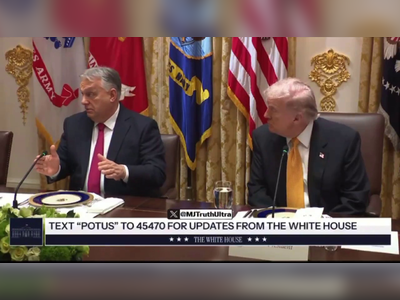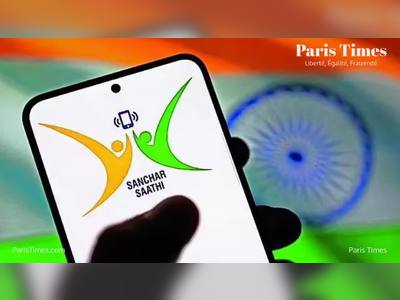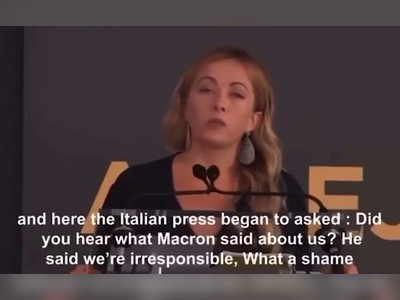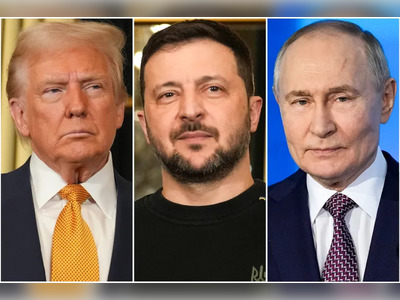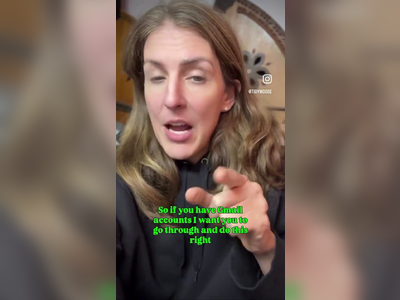Russian Classical Music Stars Make a Comeback in Europe Amid Ongoing Conflict
Controversial performances by Russian artists reignite tensions between Ukraine, the EU, and supporters of cultural engagement.
In a notable resurgence reminiscent of earlier centuries, prominent Russian classical musicians are returning to concert stages across Europe, a development met with criticism from Ukraine and the European Union.
Historically, Russian composers and performers have held a significant presence in European music and opera, serving as cultural ambassadors during times of military expansion.
However, this relationship faced a drastic shift following the Russian invasion of Ukraine in February 2022, which resulted in widespread cancellations of Russian performances and a broader movement of 'derussification' in the arts.
Despite the ongoing conflict, the last three years have seen a quiet re-entry of some of Russia's biggest classical music stars into European cultural venues.
Critics view this as a potential strategy by the Kremlin to counter its international isolation, utilizing art and culture as instruments of soft power.
Ukraine's Minister of Culture, Mykola Tochytsky, expressed concerns about the reintegration of Russian artists into European cultural spaces.
He emphasized that inviting Russian artists could inadvertently contribute to misinformation and a culture of aggression.
Similarly, European Commissioner for Culture, Glenn Micallef, asserted that European stages should refrain from hosting individuals perceived as supporting the ongoing aggression against Ukraine.
The landscape of classical music in Europe has been notably affected by political dynamics.
Valery Gergiev, a renowned Russian conductor, has faced a tumultuous career trajectory since the onset of the Ukraine conflict.
Previously celebrated, Gergiev was dropped by many institutions and faced sanctions after publicly supporting Kremlin initiatives, including the 2014 annexation of Crimea.
Yet, he is scheduled to perform in Barcelona next year with the Mariinsky Orchestra, an event supported by European funds.
The event's organizer indicated that legal barriers to Gergiev's participation were non-existent, framing music as a potential bridge for reconciliation.
The European Commission, however, is actively investigating the use of EU funds in association with Gergiev’s concert and ensuring compliance with political directives regarding Russian artists.
A spokesperson for the festival mentioned that while they had sought post-COVID recovery funding, no EU subsidies had been utilized for events featuring Gergiev.
Micallef reiterated the necessity for strong political statements concerning the presence of artists associated with the war.
In response to this growing phenomenon, the Ukrainian artistic community has expressed discontent with Europe’s perceived leniency towards Russian figures.
Eugene Lavrenchuk, a Ukrainian director, resigned from a production after learning of Russian artists’ involvement, stressing that such collaborations are viewed as security threats rather than merely cultural decisions.
Amid ongoing conflict, Lavrenchuk contends that the West’s historical engagement with Russian culture often ignores its ties to Kremlin narratives.
The backlash against Russian artists is evident with protests erupting in response to performances by figures such as soprano Anna Netrebko, who has faced scrutiny for previous political affiliations with the Kremlin.
While Netrebko has criticized the war and refrained from direct political involvement, many remain unconvinced, pointing to her past support of Russian initiatives.
Following the invasion, prominent venues distanced themselves from her, leading to a hiatus from performances across major international stages.
However, a resurgence in her schedule has seen her return to the U.S. and other European venues, eliciting both enthusiasm and opposition.
As protests against these performances show no sign of abating, Ukrainian officials continue to advocate for greater recognition and engagement with artists from Ukraine and allied nations instead of their Russian counterparts.
Tochytsky suggested that European theaters should focus on promoting talents from Ukraine, Poland, and Sweden, asserting that these artists not only possess equal talent but also share democratic values in opposition to Russian aggression.
This complex intersection of culture, politics, and security remains under scrutiny as the broader implications of supporting or condemning Russian artists evolve amidst continuing military tensions.
Historically, Russian composers and performers have held a significant presence in European music and opera, serving as cultural ambassadors during times of military expansion.
However, this relationship faced a drastic shift following the Russian invasion of Ukraine in February 2022, which resulted in widespread cancellations of Russian performances and a broader movement of 'derussification' in the arts.
Despite the ongoing conflict, the last three years have seen a quiet re-entry of some of Russia's biggest classical music stars into European cultural venues.
Critics view this as a potential strategy by the Kremlin to counter its international isolation, utilizing art and culture as instruments of soft power.
Ukraine's Minister of Culture, Mykola Tochytsky, expressed concerns about the reintegration of Russian artists into European cultural spaces.
He emphasized that inviting Russian artists could inadvertently contribute to misinformation and a culture of aggression.
Similarly, European Commissioner for Culture, Glenn Micallef, asserted that European stages should refrain from hosting individuals perceived as supporting the ongoing aggression against Ukraine.
The landscape of classical music in Europe has been notably affected by political dynamics.
Valery Gergiev, a renowned Russian conductor, has faced a tumultuous career trajectory since the onset of the Ukraine conflict.
Previously celebrated, Gergiev was dropped by many institutions and faced sanctions after publicly supporting Kremlin initiatives, including the 2014 annexation of Crimea.
Yet, he is scheduled to perform in Barcelona next year with the Mariinsky Orchestra, an event supported by European funds.
The event's organizer indicated that legal barriers to Gergiev's participation were non-existent, framing music as a potential bridge for reconciliation.
The European Commission, however, is actively investigating the use of EU funds in association with Gergiev’s concert and ensuring compliance with political directives regarding Russian artists.
A spokesperson for the festival mentioned that while they had sought post-COVID recovery funding, no EU subsidies had been utilized for events featuring Gergiev.
Micallef reiterated the necessity for strong political statements concerning the presence of artists associated with the war.
In response to this growing phenomenon, the Ukrainian artistic community has expressed discontent with Europe’s perceived leniency towards Russian figures.
Eugene Lavrenchuk, a Ukrainian director, resigned from a production after learning of Russian artists’ involvement, stressing that such collaborations are viewed as security threats rather than merely cultural decisions.
Amid ongoing conflict, Lavrenchuk contends that the West’s historical engagement with Russian culture often ignores its ties to Kremlin narratives.
The backlash against Russian artists is evident with protests erupting in response to performances by figures such as soprano Anna Netrebko, who has faced scrutiny for previous political affiliations with the Kremlin.
While Netrebko has criticized the war and refrained from direct political involvement, many remain unconvinced, pointing to her past support of Russian initiatives.
Following the invasion, prominent venues distanced themselves from her, leading to a hiatus from performances across major international stages.
However, a resurgence in her schedule has seen her return to the U.S. and other European venues, eliciting both enthusiasm and opposition.
As protests against these performances show no sign of abating, Ukrainian officials continue to advocate for greater recognition and engagement with artists from Ukraine and allied nations instead of their Russian counterparts.
Tochytsky suggested that European theaters should focus on promoting talents from Ukraine, Poland, and Sweden, asserting that these artists not only possess equal talent but also share democratic values in opposition to Russian aggression.
This complex intersection of culture, politics, and security remains under scrutiny as the broader implications of supporting or condemning Russian artists evolve amidst continuing military tensions.
